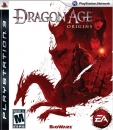NJ5 said:
jammy2211 said:
NJ5 said:
jammy2211 said:
NJ5 said:
jammy2211 said:
The big retailers, Gamestop, GAME, Best Buy etc buy games at ~ $45 per copy for a $60 game. They simply couldn't afford to pay that, or order as many copies of games as they do currently, if there wasn't a used game market to bring them the money.
|
^ Ummm no that part's not true. There are plenty of retailers which don't sell used stuff and are perfectly able to order as many games as they need.
|
Not in the UK - and are those retailers video game only or do they sell a variety of media as well as video games? Cause if they've got other sources of revenue then er... that kind of proves my point.
As far as I'm aware these stores pretty much lose money selling first hand software - once you include the costs of running the store, paying staff, taxes etc.
|
It doesn't prove your point. They sell more stuff and have more revenue but they have more employees as well, being bigger retailers.
I don't see how a decent games store would lose money by selling only first hand software, given that it has like a > 33% gross margin that many businesses would kill to have.
|
It has a 33% gross margin if it sells every single copy of a bulk order at full price - they won't though, and as soon as that 500000 order of a 'sure hit' bombs - you can bet the retailers is going to bleed money from it. Yes they have protection in place to not make it hurt too bad, but for all the games they make money on at full price there are games they're forced to sell below what they paid for it.
By selling more media, thus attracting a bigger market, the costs of running the store, paying staff, taxes, location rental, brand marketing etc etc is less significient as they make bigger revenue. That's why (UK example here) a shop like WHsmiths can afford to only sell first hand video games, it's just one part of a range of product - and their whole revenue doesn't rely on it.
The video game retail industry is by no means a 'cushdy' and easy place to make money, and third parties wouldn't be selling their games with such minimal profit margins for retailers if the second hand market didn't exsist.
|
Reduce the gross margin to 20 or 25% and that's still enough to make a healthy profit, for a company which only spends money on rent and low-wage hourly employees. Provided you have a decent sales volume of course, because if you're selling 20 games a day you might as well file for bankruptcy immediately.
Historically there have been plenty of stores which only sold new games. Just because Gamestop is big and sells used games doesn't mean they need it to make a profit.
|
What gross profit margin of 20%? It's just as easy for a game to bomb and lose them lots of money as it for them to sell all their stock of just one game at full price. They're not in a position where they make a profit on everything they sell, the developers have control over that as much as they do and you can bet Activision and EA arn't going to let them order 10000 copies, sell them all, order another 10000, sell them all, order another 10000 - i.e. have the most safe, risk free strategy imagineable. There's a huge amount of risk just like any retail industry.
Only spends money on rent and employee wages? Yeah right. If you honestly think that's all the expenses there are in running a multi-national retail chain you're deluded.
I personally have never known a store which relies entirely on first hand video game and console sales to fuel its business, with no other form of media or product at all. Maybe it happened 10 years ago - maybe the margins were better - but in todays climate it would be impossible for such a store to exist.
Just curious, where are you getting your ideas and analysis of the video game retail industry from. I've spoken in depth to this with a friend on the internet - who owned an independent video game store but ultimately was forced to sell it.



















































